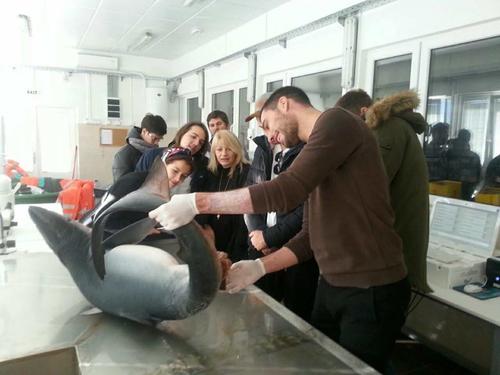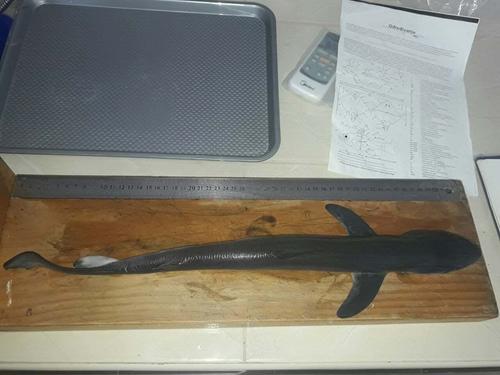Ilija Ćetković
Other projects
22 Mar 2016
Distribution and Conservation of Vulnerable Blue Shark (Prionace glauca L.) in Coastal Waters of Montenegro
6 Apr 2017
Reducing the Negative Impact of Tuna Fisheries on Pelagic Sharks and Their Conservation in Montenegrin Part of the Adriatic Sea
Main goals of the project are to ensure scientific data for the management of sharks within Montenegrin waters and support changing of public and institutional opinion about these species. First goal will be achieved through performing fieldwork activities which will cover several segments of Montenegrin fishing fleet. After the data collection, publication with results and proposed measures for sharks will be made and published. Second goal will be achieved by promoting sharks among community with presentations, lectures, media and educational material. Project website will be designed, too. Fishermen community and local schools will be visited. Institutional capacities will be strengthened by organizing a workshop for presentation of the project and its results and meetings that will seek to encourage representatives of institutions to give more efforts for shark conservation.

Presentation of shark biology for the college students.
Sharks are among the most endangered marine species and are affected by both benthic and pelagic fishing gears. They have small number of pups and long pre-mature period, so overcrowding negatively reflects on populations. Big number of shark species that are inhabiting Adriatic are threatened according to the IUCN criteria, from which some are critically endangered and protected by international law. Some are protected by national law and it need to be enforced. Ecological knowledge about this issue is on the insufficient level and need to be improved, too. Project seeks to find solutions for these issues and improve knowledge of all involved stakeholders.

Taking morphometric measures of newborn Blue shark caught by gillnet.
Fieldwork will be performed for 40 days during the warmer half of the year. Four fleet segments are included into survey and those are: trawlers, pelagic longliners, set gillnets and big game fishing. For each segment, 10 days of fieldwork has been predicted. Collected data will include fishing activity and habitat data (fishing gear characteristics, locality, timeframe, depth…) and biological data of the found sharks (morphometric measures, sex, reproductive status and other). Collected data will be included into publication at the end of the project and shared to all interested parties.
Educational part of the project is including presentations for the pupils in the elementary and high schools across the coastal region of Montenegro. For wider community, project website will be designed and short impact video will be produced. Project predicts developing of different kind promotional materials which will serve for long-time promotion of sharks and their importance through conservational messages. Furthermore, workshop for the representatives of fishermen community and government institutions will be organized. It will serve for summarizing the project results and determine further actions.